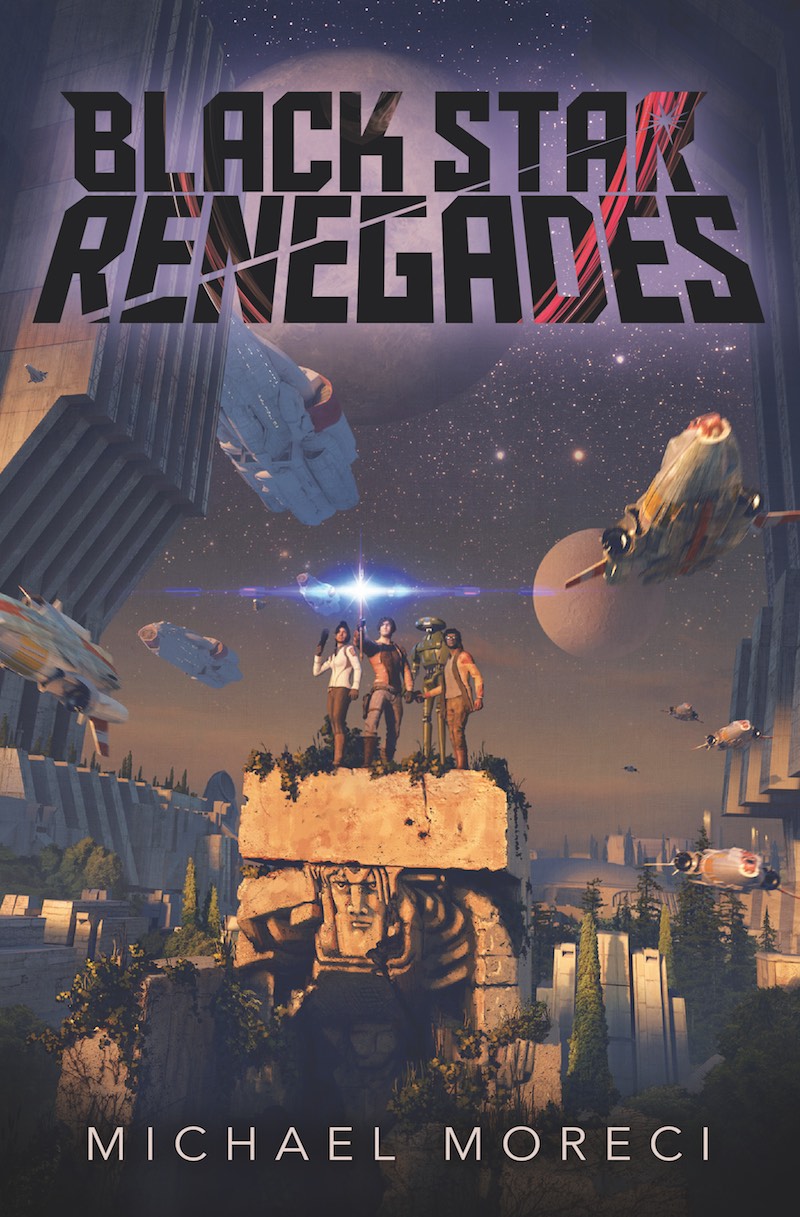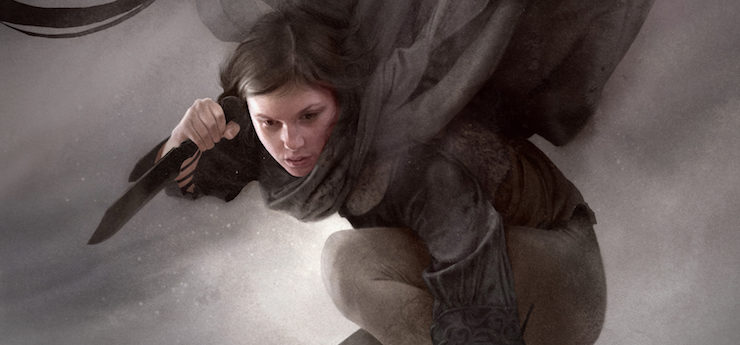Many moons ago, when I was a young lad attending ye olde undergraduate university, I was filled with visions of writing big, rollicking sci-fi and fantasy stories. My heroes were Kurt Vonnegut, Ray Bradbury, J.R.R. Tolkien, and Star Wars (yes, your hero can be a movie and not a person—just roll with it). I settled into my first creative writing class and was promptly told—in a syllabus about the size of a Robert Jordan novel, ironically—that I could take my ideas of writing genre fiction and go straight to hell. Serious Writers—yes, writers is intentionally capitalized in this context—didn’t dabble in space and elves and lightsabers, and if I turned in a story that even tickled my professor’s olfactory senses with a whiff of genre, it would go unread and, therefore, ungraded.
Suffice to say, that class was a fucking drag.
Now, this isn’t going to be a post about how genre works aren’t taken seriously. Not at all. Because our work is pretty much owning entertainment. TV, movies, books, you name it—genre has suctioned onto the face of mainstream culture like a facehugger in heat. So take that, undergraduate professor.
Instead, what I’m talking about here is the perception—or misperception, rather—that writers need to write seriously if they want to be taken seriously. I mean, that’s exactly what my undergraduate prof was saying—she only would entertain serious works of fiction, and sci-fi, fantasy, horror, anything genre could never be considered serious. And I think, to a certain degree, genre writers are still shaking off the shackles that bind us to this silly idea of what it means to be a Serious Writer.
These walls are starting to come down as, again, genre has proliferated in mainstream culture. People are seeing how human and soulful sci-fi stories can be; they’re starting to understand the depth of character that has always existed in superhero comics. And that’s just two examples. Genre fiction, in whatever form it takes, has always had the flexibility to be impactful in any number of ways. But there’s a lot of writers out there—and believe me, I’ve spoken to them—who haven’t been let in on the big secret:
You can write stories that are fun, adventurous, weird, whatever, and still be taken seriously.
If you couldn’t, well, Brandon Sanderson (amongst other amazing writers) would probably be out of a job.
Where to begin when it comes to extolling Sanderson? There are so many things to talk about, like: How the hell does he write so many books? How does he write so many pages? How does he write so many words? Is he less a man and more a suit filled with teensy writers pounding away at teensy typewriters, churning out one epic book after another?
That’s another story.
For the purposes of this post, I’m strictly looking at Sanderson’s ability to maintain a light, breezy tone that is (somehow) both casual and absolutely precise. Sanderson’s writing is magic; how he manages to deftly balance such a casual tone and still tell a compelling, rich, and sometimes even dark story is almost as incredible as his level of output.
In Mistborn, Sanderson is telling a story that is anything but breezy. We’re looking at a world—the Final Empire—that’s been devastated by an event precipitated by the Lord Ruler, the mad king/god, and it’s remained devastated for centuries because the Lord Ruler is immortal. The sun burns red, ash never stops falling from the sky, and most of the people are slaves (or skaa, as they’re called in the book). Its two main characters—Vin and Kelsier—have suffered abuse, tragedy, torture, and more. And underlying all of that are strong thematic currents of rebellion, the nature of evil, and trust.
But still. The story is fun. Reading Mistborn is fun, and it all comes down to the way Sanderson approaches his material. Take for instance how Sanderson crafts the end of Mistborn’s second act. Now, in case you don’t know, the end of the second act is traditionally where the protagonist(s) hit their lowest point (which makes their rise in act three all the more powerful). [Note: If you haven’t read the book, SPOILERS ahead] In Mistborn, Kelsier and his gang hit bottom, seemingly, after their skaa army foolishly goes off and attacks one of the Lord Ruler’s garrisons. They get slaughtered, eliminating a key component of Kelsier’s grand plan. True to Kelsier’s character—and true to Sanderson’s writing—the setback doesn’t result in a new, grim path for the story. Things don’t get bleak. Yes, they get bloody when the Lord Ruler beheads a bunch of skaa as punishment for the act, but Kelsier still finds hope in the face of this despair. As the skaa are tragically executed before Kelsier’s and his crew’s eyes, he reminds them that this heinous act shouldn’t deter them; it should galvanize them. This display of brutality is why they fight. It’s why they’re rebelling.
Finding hope amongst the ruins is what helps define Mistborn and Sanderson’s work. Couple that optimism with witty dialogue and colorful characters, and you have a book that defies expectations in subtle and exciting ways. In other hands, Mistborn would probably be a downer. It’d be worse than dark—it’d be bleak (and I, for one, loathe relentlessly bleak stories). But, somehow, we’ve been tricked into believing that dark and bleak is a shortcut to being taken seriously; that there’s less merit in levity and humor. You have to go full-on The Jungle in order to be join reputable company, and that’s just not the case.
Sanderson’s power doesn’t reside solely in his storytelling decisions; it’s not just the story he tells, but how he tells it. Despite being 700+ pages (at least), Sanderson’s books move at a tremendous clip; he paces incredibly well and knows just when to step on the gas and when to allow for some slower moments to creep in. His prose is snappy and oftentimes funny.
There’s nothing wrong with serious fiction. In the pages of some of my favorite novels there’s not a single laugh to be found. And that’s okay. Really. But fun novels aren’t inherently less. They aren’t less important, they aren’t less complex, and they certainly aren’t less challenging.
There you have it, writer friends. The truth is out there: You can be fun, you can be serious, you be anything you want.
Actually, no. Don’t be boring. There’s nothing worse than boring.
Originally published January 2018.
Buy the Book


Black Star Renegades
Michael Moreci is a comics writer and novelist best known for his sci-fi trilogy Roche Limit. His novels Black Star Renegades and We Are Mayhem are published by St Martin’s Press. Follow him on Twitter @MichaelMoreci.










